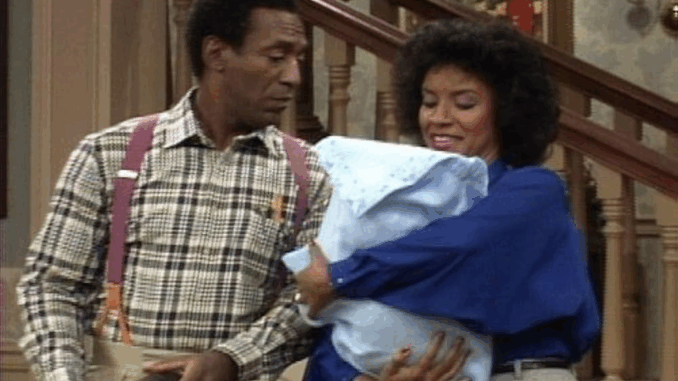
In the golden era of 1980s television, one show didn’t just dominate the ratings—it reshaped American culture. The Cosby Show, which aired from 1984 to 1992, wasn’t just another sitcom. It was a cultural earthquake that shattered racial stereotypes, redefined family values, and brought in over 30 million viewers a week at its peak. But in the years since, its legacy has become as complicated as its rise was meteoric.
A Revolutionary Sitcom in Primetime
When The Cosby Show premiered on NBC, no one could have predicted that a middle-class Black family—the Huxtables—would become America’s favorite household. Led by Bill Cosby as the lovable, sweater-wearing Dr. Cliff Huxtable, the show broke every mold. It wasn’t about poverty or urban struggle. It was about jazz, education, parenting, and the everyday hilarity of family life.
For the first time, millions of viewers saw a successful, educated African-American family portrayed with depth, dignity, and humor. The show became a mirror and a blueprint, proving that great storytelling transcends race and that diversity could drive ratings—not drag them down.
Shattering Records, Building Bridges
At its height, The Cosby Show was the No. 1 show in America for five consecutive years. It resurrected NBC, saved Thursday night programming, and paved the way for future hits like The Fresh Prince of Bel-Air, Family Matters, and Black-ish. It wasn’t just must-see TV—it was historic.
Its success also opened doors for Black actors, directors, and writers in Hollywood. Behind the scenes, it nurtured talent like Debbie Allen and Phylicia Rashad, giving them platforms that would influence generations.
A Legacy in Shadows
But decades later, the glow of The Cosby Show has dimmed under the weight of real-world revelations. Allegations and convictions against Bill Cosby have cast a long, troubling shadow over the show’s legacy. Networks pulled reruns, awards were rescinded, and fans were left asking: Can we still love what he helped create?
The answer isn’t easy. For many, The Cosby Show remains a symbol of possibility and representation. For others, it’s tainted by the fall of the man behind the curtain. The show’s brilliance is undeniable, but so is the pain tied to its creator.
Why The Cosby Show Still Matters
Despite the controversy, The Cosby Show‘s impact on television is irreversible. It dared to imagine a better version of America—and for a while, it made that vision feel real. It showed that Black excellence could be mainstream, that laughter could be healing, and that TV could do more than entertain—it could inspire.
As we reflect on 40 years since its debut, one truth stands tall: The Cosby Show changed television forever. And whether we embrace it, critique it, or mourn what it became, we cannot deny what it once was—a revolution in prime time.